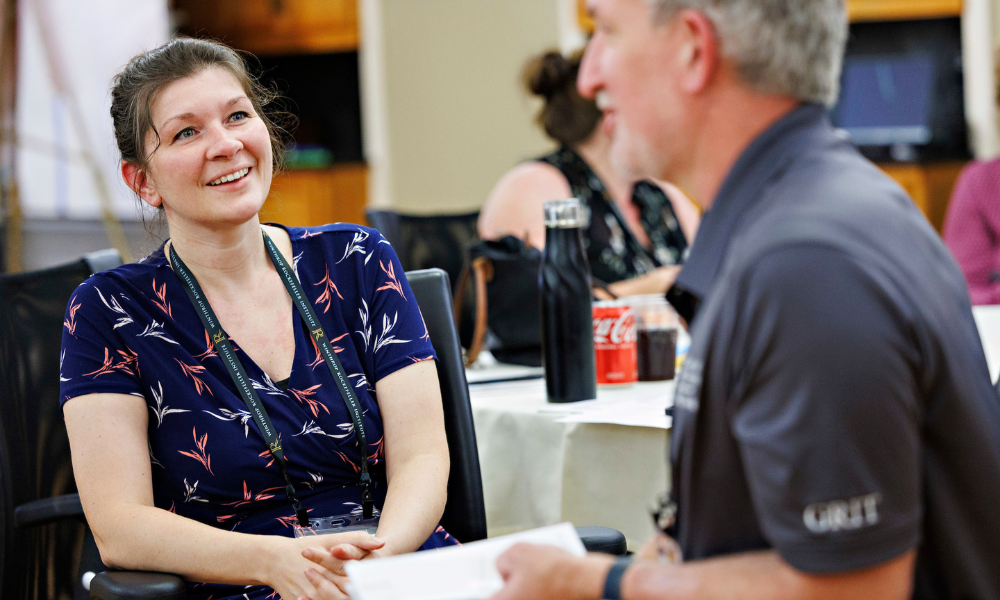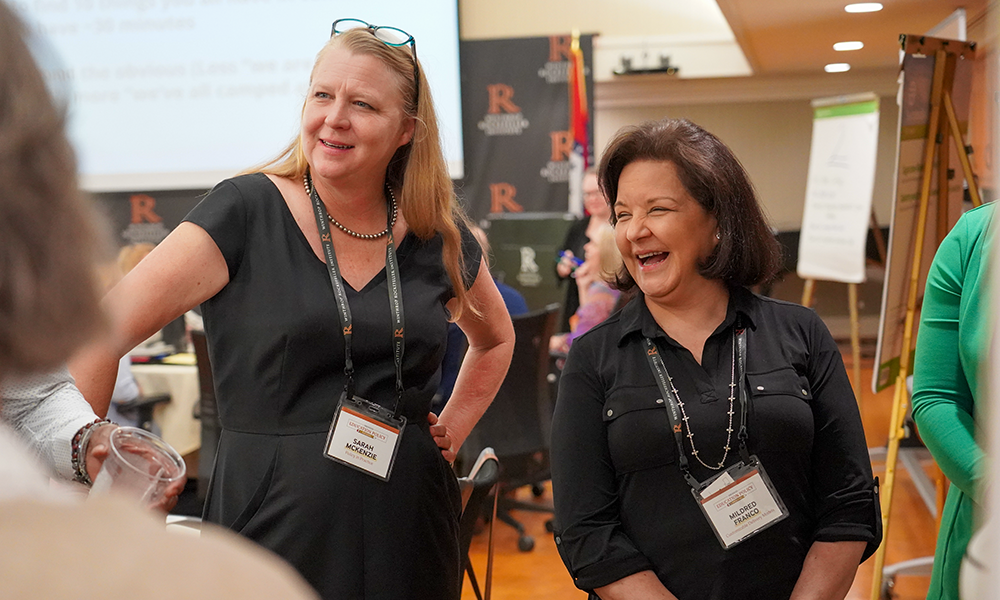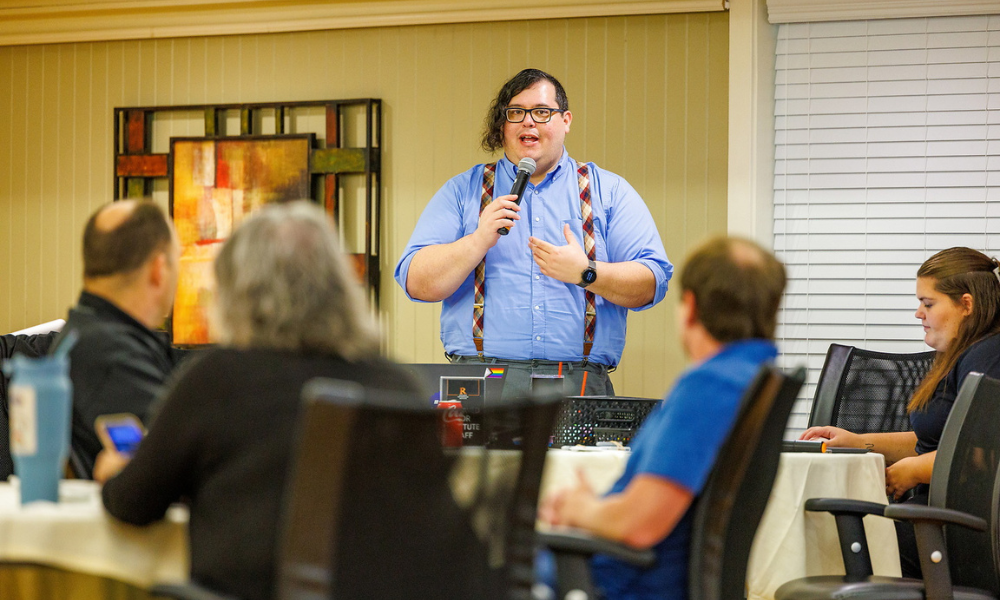In this new four-part blog series, we’re diving deep into the Rockefeller Ethic — our guiding process inspired by the life and leadership of Winthrop Rockefeller. Each post will explore one of the essential principles that define this equation.
Up next is Respectful Dialogue. Payton Christenberry, director of our facilitation services team, shares how his work embodies this aspect of the Rockefeller Ethic and the tools he uses to help participants overcome one of the most challenging barriers to meaningful collaboration.
Facilitation and the Rockefeller Ethic go hand-in-hand. When we are designing or leading a meeting, we use the Ethic as our guidepost. And while the different aspects of the Ethic are all important, one of the trickiest and most crucial for me is Respectful Dialogue.
These two simple words encompass complex and meaningful interactions, and when the right space is created for them, a group can progress further, faster. To foster this environment, we employ various facilitation tools, but I consistently rely on three core concepts:
- The difference between nice and kind
- The importance of norms and agreements
- The need for structure
Nice vs. Kind
When people hear “respectful dialogue,” they often interpret it as “everyone being nice to each other,” which is understandable but misguided. Being “nice” often means holding back to avoid disrupting the flow or creating discomfort. While that approach works well for casual interactions or small talk, it falls short when charting a collaborative path — whether building a new strategic vision or getting to the root of a thorny, shared challenge.
Instead, I view respectful dialogue as inviting kindness. Unlike being “nice,” kindness can be uncomfortable because it requires actively considering the well-being of the group. A kind participant values others’ time and energy enough to ask tough questions or address the “elephant in the room” before it disrupts progress. This isn’t easy to do, which is why we emphasize it so strongly in our planning and design process.


Norms & Agreements
In order to encourage kindness and foster respectful dialogue, it is important to establish some shared rules. This is foundational to almost any facilitation but holds special significance in the Rockefeller Ethic. Setting norms or agreements makes our implicit understanding of respectful adult interaction explicit, creating a framework everyone can agree on or adapt to fit the specific group or meeting. Clear agreements reduce ambiguity around roles and expectations, making respectful dialogue easier to achieve without unclear rules of engagement.
Two agreements we use to support respectful dialogue are “we know every contribution is worthwhile” and “we will suspend judgment.” These principles apply not only to our interactions with others but also to ourselves. Creating a space where all ideas are shared and considered — even those that seem incomplete or unconventional — demonstrates vulnerability and trust, signaling respect for the group as a whole.
Structure
One of the most effective ways to foster respect in a meeting and work toward a common goal is through structure. Meetings with a clear, shared objective, defined time limits, and space for every voice to be heard naturally encourage respectful dialogue.
Participants need clarity on why they are gathered and what goal they’re working toward, reducing confusion or hesitation. Setting time limits shows respect for everyone’s time and energy, while a structured approach to feedback and ideation accommodates diverse learning and communication styles, ensuring that each participant has a comfortable way to share their ideas. All of this requires careful planning by the meeting host or facilitator, helping participants adopt the right mindset for meaningful work.


These three principles can be applied to any meeting. In our facilitation work, we often engage with diverse groups — whether large gatherings of people who rarely interact or leadership teams with years of shared experience. Both types benefit from reminders to practice kindness, establish shared norms, and follow a thoughtful meeting structure. While we typically spend an entire day with groups, these concepts are equally effective in shorter settings, such as staff meetings, one-on-ones, or community gatherings where new ideas need exploration or decisions are made.

Payton Christenberry
Director of Facilitation Servicespchristenberry@rockefellerinstitute.orgIs your organization on the brink of something great but needs help turning vision into reality? We’re here to design the best approach for your team, making it easier for them to excel.

